Why Quartz?
Quartz is gifted with outstanding physical properties that give transparent patterns and protect it from bacteria, impact, acids and alkalis.
Common Surface Material
Countertops are a way to showcase your style and taste but are also a key to healthy living.
Finding the right kitchen appliances and bathroom surfaces allows you to build and maintain a healthy, high-quality home.
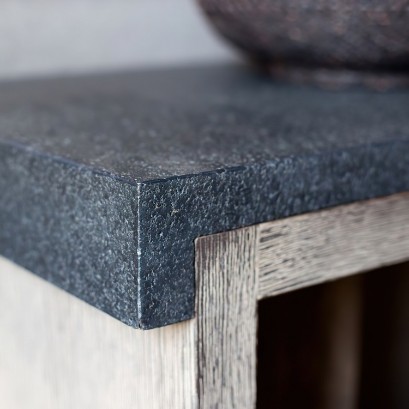
Natural Stone

Solid Surface
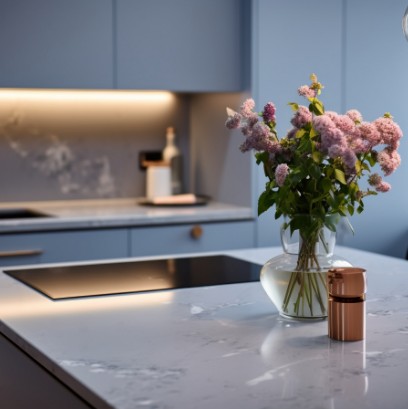
Quartz Surface
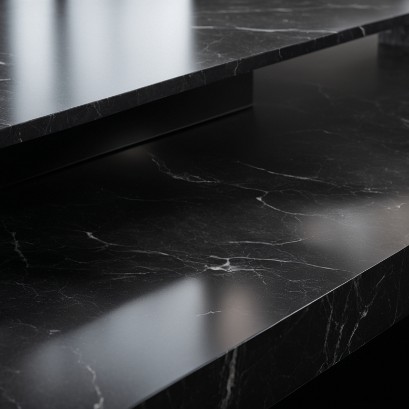
Ceramic Sheet
Does your countertop also have the following troubles?
Water Damage
Natural Stone (marble & granite) is mainly composed of calcium carbonate which is naturally porous and thus susceptible to mold in humid environments. Moldy marble not only affects the appearance of your counter but can also seriously impact your health.
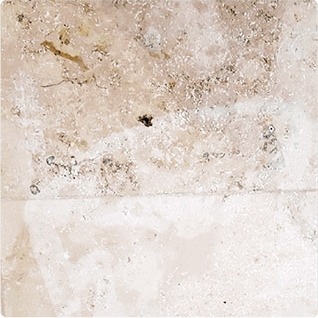
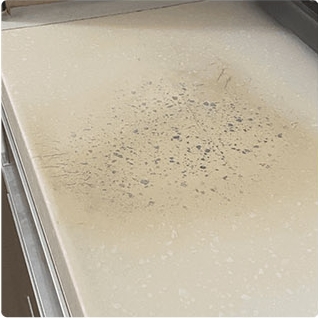
Countertop Stains
Natural and solid surfaces are both porous which allows them to absorb various liquids and hold on to dust and dirt. Dark liquids like soy sauce, red wine, or coffee can potentially stain countertops made from natural or artificial stone materials.
Scratches
Marble and solid surface have a hardness of 3 on the Mohs Scale while ceramic slabs have low impact resistance due to their high level of hardness. Therefore all three are prone to cracks from heavy impact.
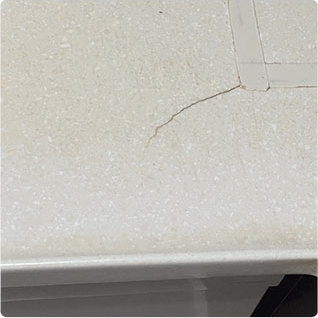
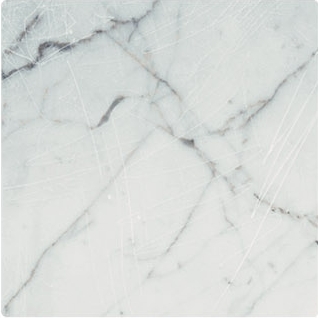
Cracks
Marble has a hardness of 3 on the Mohs scale and is prone to scratches. Solid Surface is made of natural stone, powdered glass, resin, and other filler in a ratio of 60:40. The low ratio of natural stone used in Solid Surface makes it soft and susceptible to scratches.

Water Damage
Natural Stone (marble & granite) is mainly composed of calcium carbonate which is naturally porous and thus susceptible to mold in humid environments. Moldy marble not only affects the appearance of your counter but can also seriously impact your health.

Countertop Stains
Natural and solid surfaces are both porous which allows them to absorb various liquids and hold on to dust and dirt. Dark liquids like soy sauce, red wine, or coffee can potentially stain countertops made from natural or artificial stone materials.

Scratches
Marble and solid surface have a hardness of 3 on the Mohs Scale while ceramic slabs have low impact resistance due to their high level of hardness. Therefore all three are prone to cracks from heavy impact.

Cracks
Marble has a hardness of 3 on the Mohs scale and is prone to scratches. Solid Surface is made of natural stone, powdered glass, resin, and other filler in a ratio of 60:40. The low ratio of natural stone used in Solid Surface makes it soft and susceptible to scratches.
Advantages of Quartz Stone
Antibacterial & Stain-resistant
The pore-free quartz prevents stains and any bacteria and germs from multiplying. Get a quartz surface and enjoy peace of mind.
Stain-free
Quartz has a water absorption rate of less than 0.03%, making it easy to clean any spilled wine, coffee, and soy sauce.
Durable & Scratch-resistant
Quartz has a hardness of 7 on the Mohs scale, which means that it is impenetrable to most materials other than rare gems such as diamonds, topaz, and quartz.
Impact-resistant
Quartz contains small quantities (7-10%) of resin as adhesives and is therefore highly resilient against impact. It is around 8-10 times stronger than natural rocks, sheets, ceramic surfaces, and rock surfaces.
Acid- & Alkaline-proof
Quartz is naturally resistant to acids and alkaline, which means you can use any surface cleaner on the market.
Natural Patterns
Mikado Quartz has eliminated all disadvantages of natural stone materials but preserved their most charming quality. the natural patterns, which will persist after all kinds of processing.
